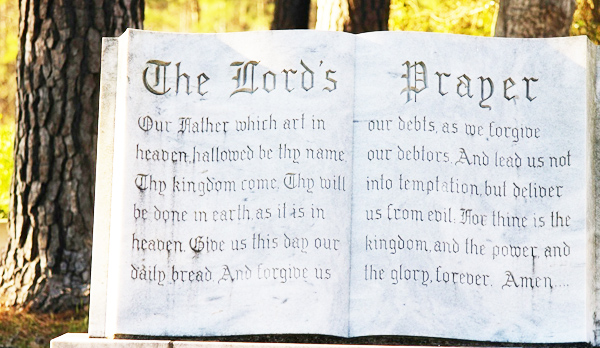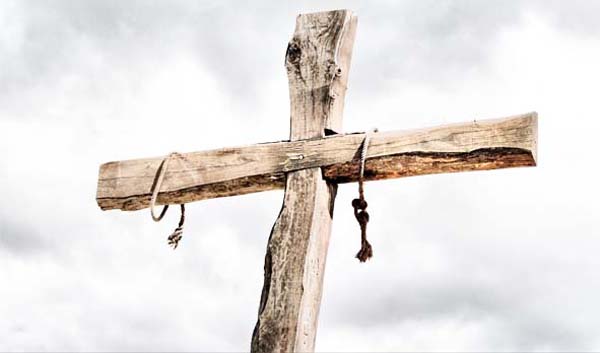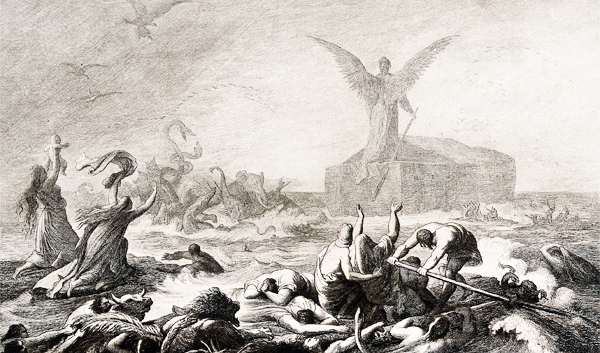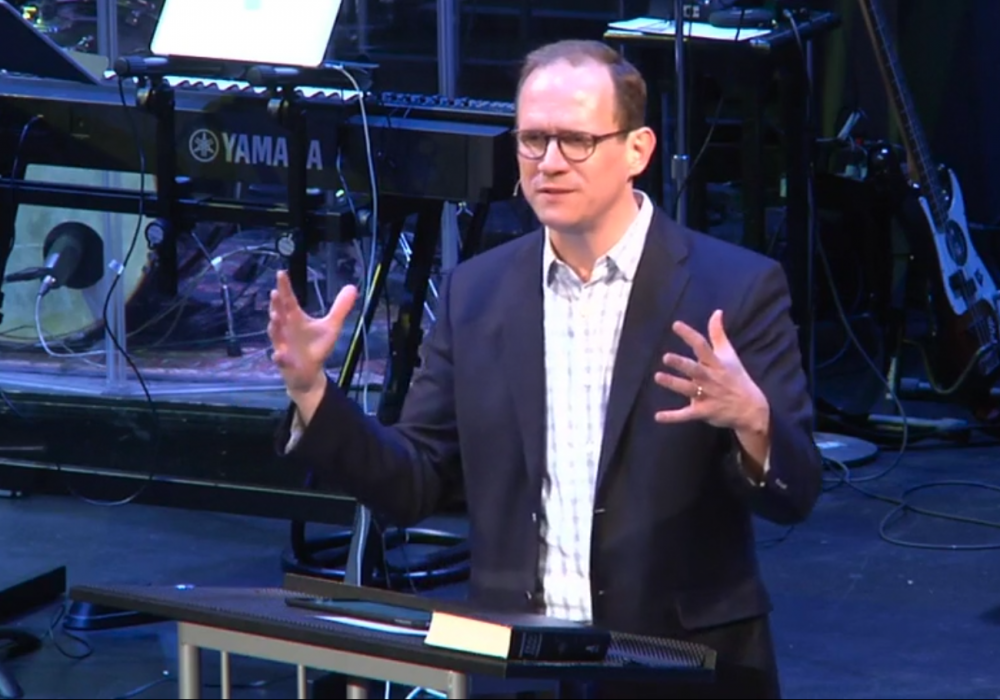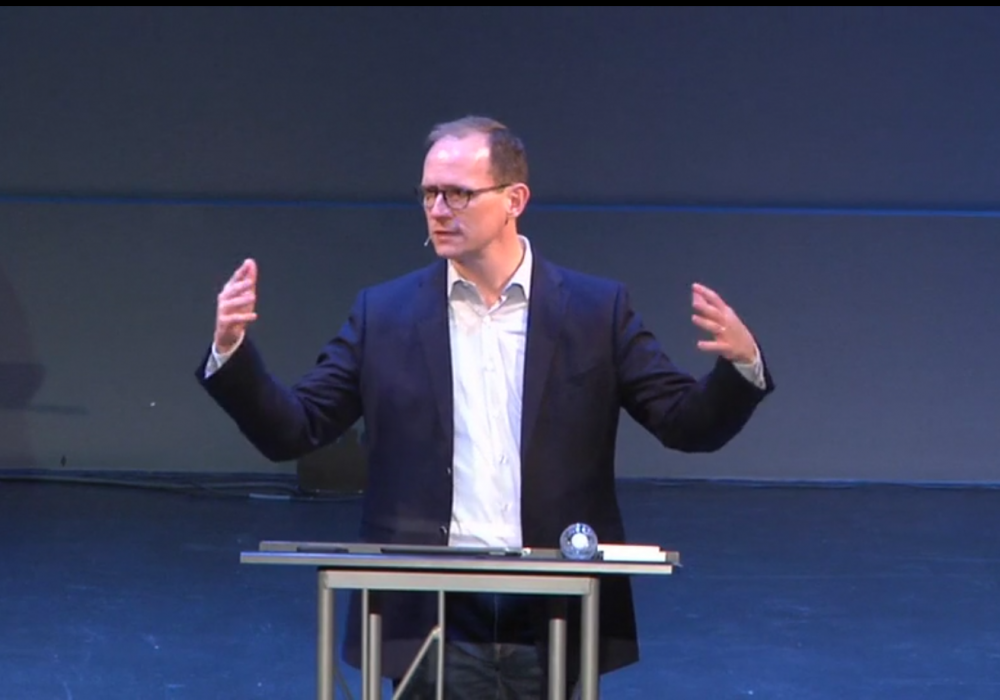Many people misunderstand the truth of God’s omnipotence — the fact that he has all power. So one might sincerely wonder why the cross of Jesus Christ was necessary. Why didn’t God just waive his omnipotent “wand” and make everything okay without his Son having to die? The key is to remember that, while God has the power to do anything he wishes, what God wants to do is always in accord with the rest of his attributes and character.
Salvation
Forgive Our Sins
Forgive us our sins (Luke 11:4). (We are continuing in our brief series of meditations on the Lord’s Prayer.) Jesus teaches us to pray daily (see previous post) for the forgiveness of our sins, assuming (as we ought to) that we have strayed from the mark each day. Sins are sins — they are not merely mistakes, flaws, personality, or “my truth versus your truth.” And every sin is against God ultimately, and so must be dealt with before God (Psalm 51:4)
Your Kingdom Come
Your kingdom come (Luke 11:2). In my last post I began a series of brief meditations on the Lord’s Prayer. The prayer begins with the request for God’s name to be hallowed, followed immediately with the prayer for his kingdom to come. When we ask for God’s kingdom to come, we are reminded that not only is God’s name and glory to come first — but also God’s desires, his will, his purposes, and his authority.
Is True Faith an Act of the Will?
True faith is an act of the will, in the sense that God gives us a new will in the new birth, along with faith (John 1:12-13; Ephesians 2:8). God does not make us robots; he successfully woos our hearts. Faith is not merely an act of the will, because it is also the act of the Holy Spirit in our souls, drawing us to Jesus Christ, and bringing us to trust in him as he is revealed in his Word (James 1:18).
I Have Other Sheep
In John 10:16 Jesus says, “I have other sheep that are not of this fold. I must bring them also, and they will listen to my voice. So there will be one flock, one shepherd.” When you hear these words, what is your gut reaction? Are you offended that Jesus is just as concerned about homeless people and third-world gorilla fighters as he is about you? Or do you feel unconcerned for “other” people, because they’re totally different than you, although Jesus loves them also?
Why Fight Sin If Salvation Is Sure?
I discipline my body and keep it under control, lest after preaching to others I myself should be disqualified (1 Corinthians 9:27). Paul, writing to the church at Corinth to correct their problems, confesses that he himself has to be careful to avoid sin. In fact Paul intimates he goes to great lengths — disciplining his body, keeping himself under control — to avoid the pitfalls of willful sin. But why? Did Paul not believe in the perseverance of the saints, or in the eternal security of believers?
God’s Irresistible Grace & Our Genuine Response
Those whom he foreknew he also predestined to be conformed to the image of his Son, in order that he might be the firstborn among many brothers. And those whom he predestined he also called, and those whom he called he also justified, and those whom he justified he also glorified (Romans 8:30). Here Paul lays out the Ordo salutis, the order of salvation. He describes for us the consecutive steps by which God accomplishes the work of redemption in each person’s life.
The Eternal Implications of the Flood
He blotted out every living thing that was on the face of the ground … Only Noah was left, and those who were with him in the ark (Genesis 7:23). The worldwide Flood is sobering to consider. In Noah’s day, at a real point in time in actual history, every person on earth was drowned except the eight who were in the Ark. This is the greatest catastrophe in history, and no other event — tsunami, earthquake, hurricane, or volcanic eruption — even comes close. This was not a “natural” or normal kind of catastrophe.
Christ for Us: the Core of the Gospel
For I delivered to you as of first importance what I also received: that Christ died for our sins in accordance with the Scriptures, that he was buried, that he was raised on the third day in accordance with the Scriptures (1 Corinthians 15:3-4). Although there is of course more to the fullness of Christian teaching than the brief creed the apostle Paul shares here, this what comes “of first importance”; this is the heart of the Christian gospel, the essential truths that separate Christians from non-Christians.
What Kind of Person Escapes God’s Judgment?
Noah was a righteous man, blameless in his generation. Noah walked with God (Genesis 6:9). In the midst of the Flood narrative, in which we are told that God saw all the world as corrupt and decided to destroy every breathing creature, we read in contrast that Noah was righteous, blameless, and walked with God. From there, of course, we learn that out of all humanity, only Noah and his family were saved from the Flood. The obvious question that this passage forces on us is this: what kind of person escapes the judgment of God?
Jesus Died To Save Us From Our Own Solutions
All we like sheep have gone astray; we have turned—every one—to his own way; and the Lord has laid on him the iniquity of us all (Isaiah 53:6). It’s not a pretty picture, but it’s true. You have seen someone trying to clean up their own mess before, and that this just ends up making things worse as long as they continue doing more of whatever caused the mess in the first place.
FAQ: Why Is Jesus’ Birth So Important?
This series of brief videos offers bite-sized, meaningful answers to commonly asked questions. We hope they will be a help to you! Please also share them freely. If you would like to submit a question of your own, please note the contact info at the conclusion of the video. We look forward to hearing from you!
Living In Light of the Gospel
You then, my child, be strengthened by the grace that is in Christ Jesus (2 Timothy 2:1). With these words, the Apostle Paul challenges his young protégé, Timothy, not to grow weary or weak as he endures for the sake of the gospel and the church in Ephesus. The church at this time was experiencing heavy persecution from the Ephesian culture around it, which had little interest in the gospel. But the church was also facing pressure from inside in the form of false teachers. The church, and Timothy, was pressed on all sides.

